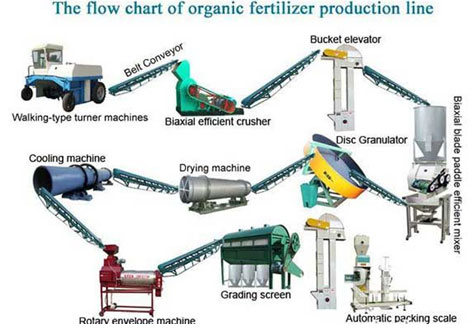Bio Fertilizers are a type of fertilizer that consists of living microorganisms, which help to improve soil fertility and plant growth. Bio Fertilizer manufacturing plants are facilities that produce these types of fertilizers. In this response, I will provide an overview of the process flow of bio-fertilizer manufacturing, the machinery used, and the benefits of bio-fertilizers.

A. Process Flow of Bio-Fertilizer Manufacturing:
The process flow of Bio-Fertilizer Manufacturing Plant can be broadly divided into four stages:
Culturing and Isolation of Microorganisms: In this stage, microorganisms are cultured and isolated in a laboratory. This involves the use of a sterile medium that provides the necessary nutrients for the microorganisms to grow.
Mass Production of Microorganisms: Once the microorganisms have been cultured and isolated, they are mass-produced in large quantities. This is typically done in bioreactors, which are large vessels that provide the necessary environmental conditions for the microorganisms to grow.
Formulation: In this stage, the mass-produced microorganisms are formulated into a bio-fertilizer product. This typically involves the addition of carrier materials, such as peat moss or vermiculite, which provide a medium for the microorganisms to grow and protect them during storage and transportation.
Packaging and Distribution: Once the bio-fertilizer product has been formulated, it is packaged and distributed to farmers and other customers.
B. Machinery Used in Bio-Fertilizer Manufacturing:
The machinery used in bio-fertilizer manufacturing depends on the scale of production. Small-scale production can be done using basic laboratory equipment, such as petri dishes, incubators, and sterilizers. However, large-scale production requires more advanced equipment, such as bioreactors, fermenters, and spray dryers.
C. Benefits of Bio-Fertilizers:
Improved Soil Fertility: Bio-fertilizers introduce beneficial microorganisms to the soil, which help to improve soil fertility and structure. This leads to better nutrient absorption by plants, increased water retention, and improved soil aeration.
Increased Crop Yield: Bio-fertilizers have been shown to increase crop yield by improving plant growth and health. They also help to reduce the dependence on synthetic fertilizers, which can be expensive and harmful to the environment.
Environmentally Friendly: Bio-fertilizers are environmentally friendly as they do not contain harmful chemicals that can harm the environment. They also help to reduce soil erosion and improve soil health.
Cost-Effective: Bio-fertilizers are cost-effective compared to synthetic fertilizers, which can be expensive. They also have a long shelf life, which reduces the need for frequent purchases.
In conclusion, bio-fertilizer manufacturing plants play an important role in improving soil fertility, crop yield, and environmental sustainability. The process flow of bio-fertilizer manufacturing involves culturing and isolating microorganisms, mass production of microorganisms, formulation, and packaging and distribution. The machinery used in bio-fertilizer manufacturing depends on the scale of production and ranges from basic laboratory equipment to advanced bioreactors and spray dryers. The benefits of using bio-fertilizers include improved soil fertility, increased crop yield, environmental friendliness, and cost-effectiveness.
